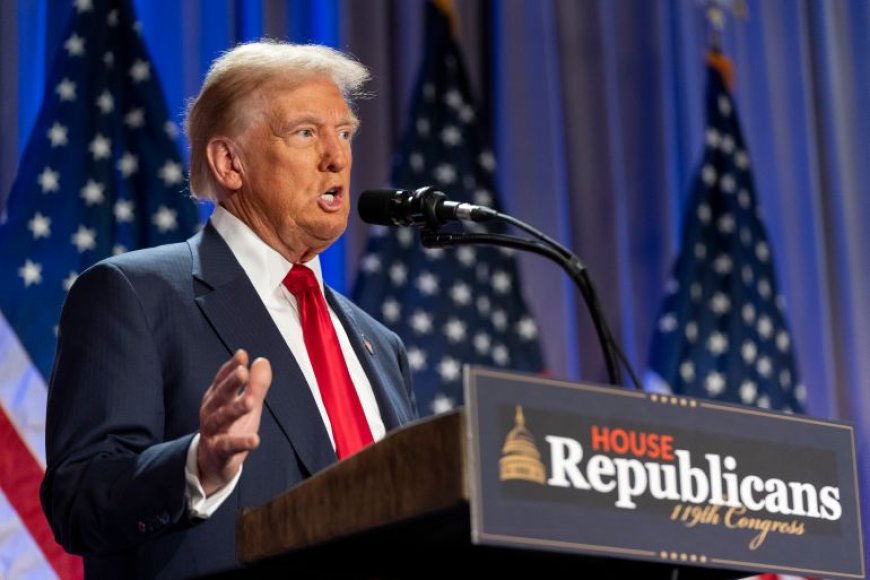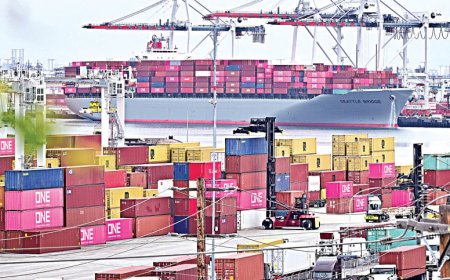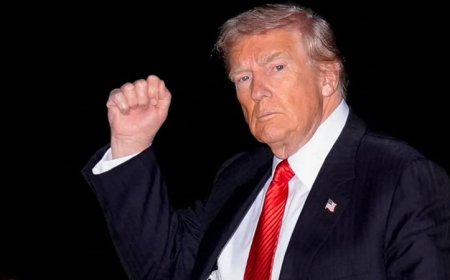Trump pledges significant tariffs on Mexico, Canada, and China
Trump pledges significant tariffs on Mexico, Canada, and China

US President-elect Donald Trump announced Monday his intention to implement sweeping tariffs on imports from Mexico, Canada, and China, citing concerns over illegal drug trafficking and immigration.
In a series of posts on his Truth Social account, Trump pledged to impose duties on all goods entering the U.S. from these countries, describing the move as a priority for his administration.
"On January 20th, as one of my first Executive Orders, I will sign all necessary documents to impose a 25% tariff on ALL products from Mexico and Canada, as well as to address the disastrous Open Borders policies," Trump wrote.
He also revealed plans to impose a 10% tariff on all Chinese imports, in addition to existing duties, blaming China for failing to curb fentanyl smuggling into the U.S.
Tariffs are a cornerstone of Trump’s economic strategy. During his campaign leading up to his November 5 victory, the Republican president-elect consistently advocated for broad tariffs targeting both allies and adversaries.
Trump’s first presidency was defined by a confrontational trade policy, including a trade war with China that saw tariffs levied on hundreds of billions of dollars’ worth of goods. He justified these measures with accusations of unfair trade practices, intellectual property theft, and a growing trade deficit. China retaliated with tariffs targeting U.S. products, particularly agricultural exports, which hit American farmers hard.
Mexico, Canada, and the U.S. are bound by the USMCA, a trade agreement renegotiated during Trump’s first term to address his complaints about losses faced by U.S. industries, particularly automakers. In response to Trump’s latest tariff threats, Canada emphasized the mutual benefits of the bilateral relationship and its critical role in U.S. energy supplies.
“We believe the relationship between Canada and the U.S. is balanced and mutually beneficial, especially for American workers,” read a joint statement from Deputy Prime Minister Chrystia Freeland and Public Safety Minister Dominic LeBlanc. They added that discussions with the incoming administration would continue.
Experts suggest that Mexico and Canada’s heavy reliance on the U.S. market limits their ability to respond strongly to Trump’s threats. Wendy Cutler, a former U.S. trade official, noted that national security concerns were likely being invoked by Trump to justify breaking trade agreements, as permitted under WTO rules, though such measures are traditionally used sparingly.
During his first term, Trump used similar justifications to impose tariffs on steel and aluminum imports from allies like Canada, Mexico, and the EU, leading to retaliatory tariffs.
Economists warn that such tariffs could harm economic growth and increase inflation, as the costs are typically passed on to consumers by U.S. importers. Despite these concerns, Trump’s advisors view tariffs as a strategic tool to secure better trade terms and encourage domestic manufacturing.
Trump’s pick for commerce secretary, Howard Lutnick, a known critic of China, has expressed support for a 60% tariff on Chinese goods alongside a 10% tariff on all other imports.
Trade experts anticipate some tariffs on China will likely proceed, as they are simpler to implement legally and politically compared to tariffs on Mexico and Canada, which would require renegotiating the USMCA in 2026.
William Reinsch, a senior adviser at the Center for Strategic and International Studies, described Trump’s approach as “classic”—using threats to negotiate favorable deals. "China tariffs are the most likely to take effect, given their relative ease and political acceptability," he added.
What's Your Reaction?




















































































